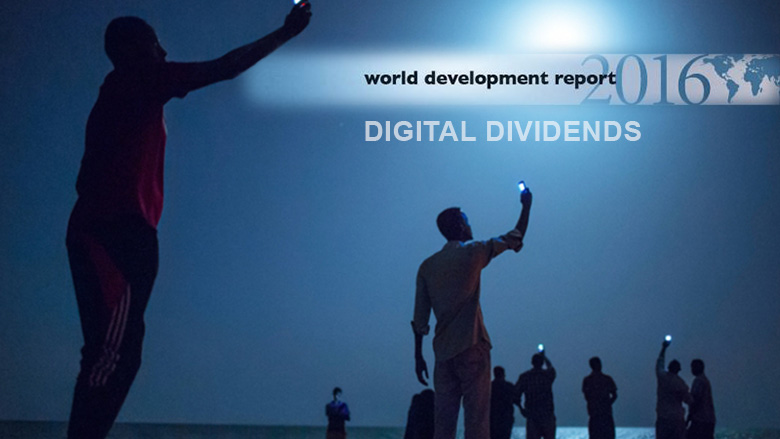Teaching “Digital Dividends”
As the digital revolution unfolds, how can awareness for the opportunities digital technology offers increase? How can basic information on digital features and digital dividends be shared globally, reaching interested policy makers, experts, and future entrepreneurs?
Digital Development Partnership (DDP) supported the development of a Massive Open Online Course (MOOC) in order to spread knowledge on digital technologies’ impact on development. This course, named Digital Dividends and hosted through the World Banks Open Learning Campus, is based on the World Development Report 2016. In its first round in December 2017, more than 3,400 people joined the course to discuss, debate, and attempt to answer some of these key questions.
The course drew students from around the globe. Seventeen percent of those students came from the United States, but people from Africa, and especially Nigeria, made up a large chunk of the rest – nearly two thirds of the course registrations came from people in low- and middle-income countries. India was third in number of enrollees. Smaller numbers of attendees came from Brazil, China, Mexico, Russia and Turkey.
Using the Course Content at Work
Students were mostly highly educated men, with a median age of 34 years; many work in government jobs. According to a post-course poll of students, 94 percent said the MOOC enhanced their knowledge and skills, and said that they will likely apply the concepts they learned in the MOOC to their daily work, because it is so timely.
“There is a sense of urgency – our world is rapidly digitizing and policy makers are falling behind in creating a set of smart policies conducive to reap digital dividends,” said Samia Melhem, Lead ICT Policy Specialist at the World Bank and a moderator of the MOOC. “There are known good practices on digital development that can be adapted and re-used by policy leaders, education leaders, private sector and industry,” she explained, “and the MOOC raises awareness and provides knowledge on what needs to be done.”
For their part, students said they intended to use this awareness and knowledge to advance their careers, for advocacy and for personal business. During a post-course assessment, one said, “I will advocate and push for better policies in my country to enhance the use of digital resources.” Another pointed to career enhancement, “As an international trade and development professional, I am planning to use the knowledge I gained from this course to focus my career within the context of digitization and development.” And a third pointed to skills for the digital future, “The space I work in contains both digital and analog components of technology and innovation. I want to raise this to an international level and this course helped me find perspective and underlying components to move forward effectively in the digital age.”
A Multi-Media and Interactive Approach
Many participants liked the course’s multi-media approach. People could collaborate on discussions and project design. The interactive sections of the course, in particular, were a constant source of vigorous inquiry. “Why is improving digital connectivity not sufficient to realize full development benefits? How can digital literacy be enhanced, as a skill to realizing the benefits of digital development?” were just some of the questions raised. More than 90 percent of participants said they would recommend the course to colleagues.
As Tim Kelly, Lead ICT Policy Specialist at the World Bank and a co-author of the World Development Report 2016 pointed out, “one of the reasons for creating the MOOC was to enable a wider number of people to participate in the consultation and dissemination process, and to test out the recommendations it offers to stakeholders.”


